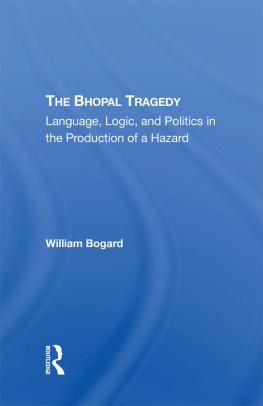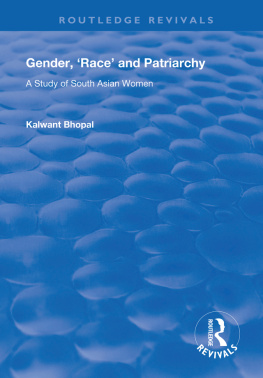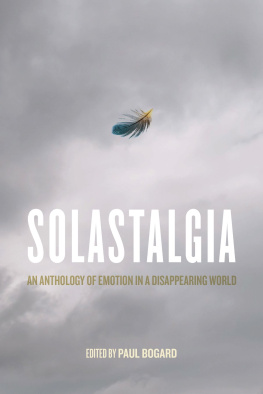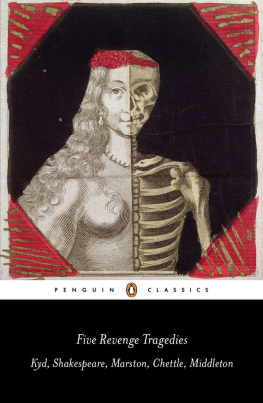First published 1989 by Westview Press, Inc.
Published 2019 by Routledge
52 Vanderbilt Avenue, New York, NY 10017
2 Park Square, Milton Park, Abingdon, Oxon OX14 4RN
Routledge is an imprint of the Taylor & Francis Group, an informa business
Copyright 1989 Taylor & Francis
All rights reserved. No part of this book may be reprinted or reproduced or utilised in any form or by any electronic, mechanical, or other means, now known or hereafter invented, including photocopying and recording, or in any information storage or retrieval system, without permission in writing from the publishers.
Notice:
Product or corporate names may be trademarks or registered trademarks, and are used only for identification and explanation without intent to infringe.
Library of Congress Cataloging-in-Publication Data
Bogard, William, 1950
The Bhopal tragedy: language, logic, and politics in the
production of a hazard/William Bogard.
p. cm.
Bibliography: p.
Includes index.
ISBN 0-8133-7786-2
1. Bhopal Union Carbide Plant Disaster, Bhopal, India, 1984.
2. Pesticides industryIndiaBhopalAccidents. I. Title.
HD7269.C4515223 1989
363.17'9dc20 89-9191
CIP
ISBN 13: 978-0-367-29033-7 (hbk)
Several years have elapsed since a gas leak at Union Carbide of India's facility in Bhopal marked the climax of a tragedy whose nightmare images will forever haunt the chemical industry. Forty years earlier, pictures of the complete devastation of a once vibrant Japanese city had much the same effect on a fledgling nuclear industry. Like the atomic explosion over Hiroshima, Bhopal continues to claim its victims long after the actual event. People still die from the lingering aftereffects of their initial exposure to the gas, and among survivors in the city a once unquestioning faith in the long-term economic and social benefits of chemical technologies has virtually disappeared.
How many have died? No one knows for certain. Official estimates from the Indian government place the figure at around 1,800, but unofficial tallies, which vary widely depending on what measures are used and whose interests are at stake, suggest anywhere from 2,000 to over 10,000 deaths. Personal injuries may have exceeded 300,000, and the impact on animal and plant life in the city was, by any measure, catastrophic. The loss in money terms is virtually incalculable. A decision regarding compensation for victims in the courts has taken nearly five years to achieve. All this while the victims of the tragedy continued to suffer. Government and corporate assistance has been painfully inadequate and marked by charges of stalling and corruption. Paradoxically, most of the human misery resulting from the tragedy came about in the name of the best intentionsto help the people of India overcome the most pressing problems of their economy, of overpopulation, and of a depleted and marginal agriculture.
Many different words have been used to describe what happened in Bhopal on the night of December 2, 1984: accident, disaster, catastrophe, crisis; but also sabotage, conspiracy, massacre, even experiment. While the latter four terms have infused the search for an impartial account of the gas leak with an air of polemic and political diatribe, the remaining termsthough at first appearing to be more evenhanded and objective in characterizing the eventare not for that any less evaluative.
Accident? Certainly. It caught virtually everyone by surprise, even though some argued later that the type of accident Bhopal experienced was inevitable sometime, somewhere, primarily due to the rapid global expansion of complex chemical technologies. Disaster? Undoubtedly. Bhopal was the worst industrial disaster in history, causing immeasurable losses to individuals, families, and organizations. Catastrophe? Again, this is unquestionable. In addition to the great harm done that horrible night in December, Bhopal will be remembered as a massive testament to the fact that technological disasters are not just historically fixed and geographically localized events; rather, they generate perturbations of the social and ecological fabric that are both long-term and highly unpredictable. Bhopal has indelibly altered our consciousness of the interconnectedness of hazardous systemsboth natural and technologicaland how the potential effects of hazards extend broadly across human institutions and generations.
All these terms contain a partial element of truth, yet I have chosen to describe the events leading to Bhopal as a tragedy. This is more than mere verbal quibbling. How we label such events has political implications for how we address and act upon a whole range of pressing questions: Who, if anyone, was responsible for Bhopal? How should victims be compensated for their losses? What, if anything, should be changed about the way we adopt technical solutions to social problems in order to insure that such a disaster will never again occur?
These questions suggest that Bhopal was more than a mere accident, disaster, or catastrophe. Each of these descriptions minimizes, in its own way, the problem of human agency and intention, and thus refuses to address directly the issue of responsibility. In calling Bhopal a tragedy, we are still permitted to say that intention and agency were involved in how the event unfolded and that responsibility must ultimately rest with someone or some group. But unlike saying that Bhopal was the deliberate result of sabotage, a conspiracy, or some diabolical experiment involving human guinea pigscharges that are virtually impossible to prove in any casea tragedy, in contrast, emerges out of a complex of confused and misguided intentions, many of which may be honorable in themselves but when forged to the actual chain of events produce the worst possible outcome. Recent criticisms of what happened in Bhopal that have sought to lay the blame on some cabal must do so, despite a very legitimate sense of outrage, by denying the fact that no one desired such an outcome. If we are to place blame, we must have a way of doing so that takes into account that most persons directly involved in Union Carbide's operations in Bhopal genuinely believed that they were doing the right thing and that they were helping a beleaguered nation faced with great and seemingly insurmountable problems.
So there are no villains in this book, although it is highly critical of the roles played by the Union Carbide corporation, the professional class of risk analysts and hazards experts, and the Indian government itself. It is critical, despite these actors best intentions, of what can only be called their unquestioning faith in technical (and thereby hazardous) solutions to tremendous human problems, and their too-ready willingness to turn a blind eye to the hazard of chemical manufacturing and label it a calculated risk taken in the pursuit of humanitarian ideals. Indeed, ignorance of the effects of their actions does not excuse the principal players, but takes them to task precisely for their unwitting participation in the succession of events.
This amounts to saying that a double sense of the term tragedy is applicable to Bhopal, one that parallels the distinction between principal players and victims. For victims of the gas leak, Bhopal was a true tragedy. There was a genuine inevitability in the catastrophic loss of life and livelihood to persons that were denied reliable information regarding chemical hazards and how to defend themselves when exposed to such hazards. For the principal players, on the other handUnion Carbide, the Indian government, and their technical/organizational supportsthe tragedy was a false one. There was no inevitability in their actions or the consequences that followed from them. Other decisions regarding the implementation of hazardous technologies could have been made, and better choices were within reach. If responsibility is the question, the answer is clear. Whether or not a conspiracy will ever come to light (or even if the disaster was the result of industrial sabotage, as some representatives of the corporation have claimed), Union Carbide itself was responsible, the government of India was responsible, a technocratic class that predictably elects profitable, low-cost, high-tech answers for human misery was responsible. Theirs is a responsibility grounded on intentional ignorance, deliberate omission, and misguided optimism.










